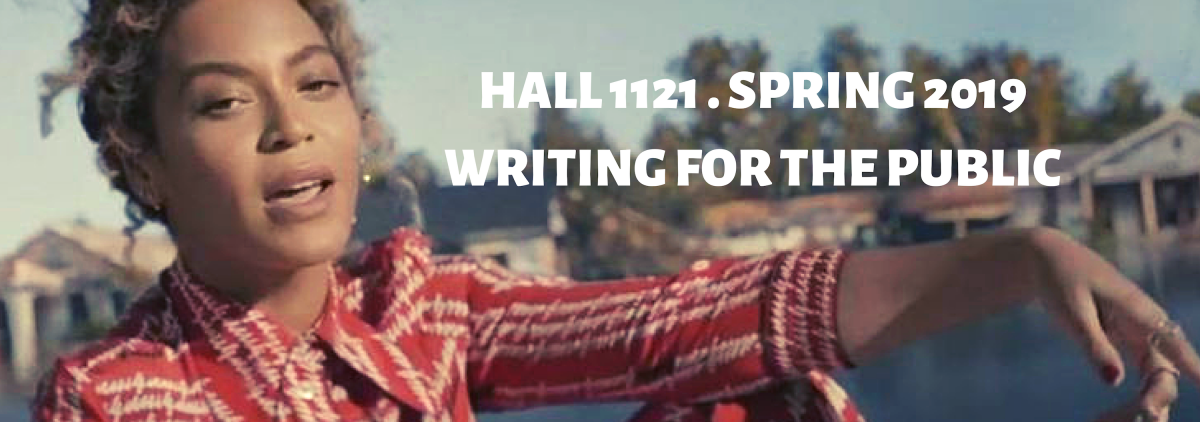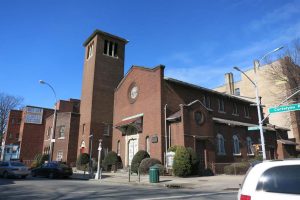Stanley Desir ENG 1121
03/11/19 Pop Culture
Ain’t No PTSDs, Them Drugs Keep It At Ease
Post traumatic stress disorder. Or as we call it PTSD, is a mental health condition that’s triggered by a terrifying event — either experiencing it or witnessing it. Symptoms may include flashbacks, nightmares and severe anxiety, as well as uncontrollable thoughts about the event. A very prominent figure in the rap culture had suffered Ptsd and shaped him into the person he is today. On his latest anticipated album “Championships” Meek Mill has a song named “Trauma”. From the beginning of the song to the end you can feel the soul samples and the beat.
The name of the song is more of a meaning then just the name of a song. It’s the reason why Meek Mill is a rapper today. When the video was released, Meek’s son is playing the role of youth meek. His childhood self sits next to a photo of his deceased father as he pens a letter to him. He also appears in the present, reflecting on his experiences, from tragic deaths to court and prison, in a mirror. Flashbacks of street life populated with drugs, money, gambling and police busts are seen throughout.
There are many lyrics through out the song that dictates Trauma as a serious issue in American culture especially within the black community. In the chorus we hear the lines “See my brother blood on the pavement, How you wake up in the mornin’ feelin’ evil? Uhh, trauma” Imagine being around the age of 14-15 and seeing bodies drop like flies. It does something to you. Later on at the beginning of a verse Meek says “Ain’t no PTSDs, them drugs keep it at ease”. In an interview with the breakfast club his response to this bar was that “It’s real life, sometimes, You might gotta get prescribed some sleeping medicine to got to sleep from trauma, shit you’ve seen. And I was really speaking of like, when you go to court, you can’t go to court and be like, “You honour, I was carrying this gun ‘cause 50 people in my neighbourhood got killed when I was young and I got Post-Traumatic-Stress-Disorder. They ain’t tryna hear that. You come from the army or something’ like that, then it makes sense. But from our community, if you come talkin’ that talk, that’s like a foreign language. I never even heard of nobody getting’ in court saying’ that. Even, having that to be a backup.” You see the issue Meek is arguing against, a young black individual can carry a firearm for their own safety because of all the trauma they’ve experienced. In the court of law it won’t be valid but for a veteran it makes perfect sense. Both a veteran and an individual whose watched people getting killed both experience the same level of trauma. Meek takes on the responsibility of using these experiences to educate his fans.
The first time I heard of the song Trauma was when it was released as a single off of Meek’s album, “Championships.” It was towards the end of my first semester of college and I was going through a stressful time with the idea of moving back to Brooklyn and transferring schools. Meek’s album gave me a good feeling. Trauma hit home because I dealt with trauma through out my life growing up in Brooklyn. In “Trauma”, I feel like Meek is explaining his views of it. I feel like he can’t escape it. The lyrics in the song that depicts that idea are “11 years going to court knowing they might keep you or drive you crazy.” Meek was placed on a 15 year probation after being convicted of aiming a firearm at a police officer.
Meek tells the story of how young kids become products of traumatizing situations when living in poor areas. serves to put the song’s lyrics of witnessing death, police abuse, drug use, and unsupervised children on display to drive the point home. It’s a reminder of the message and activism Meek Mill is trying to focus on even more in his raps. Meek has toured media outlets to advocate for criminal justice reform, focusing in particular on the unjust structural quirks of the probation system. Meanwhile, Meek’s legal team continues to fight for a retrial in his original 2008 case for allegedly brandishing a weapon at a police officer, though repeated attempts to remove the ethically controversial judge overseeing his probation have been denied. Meek even states that the judge has a lot of self hate for her own people being the same skin color as Meek and causing a lot of controversy for the rapper.
PTSD doesn’t get as much attention it deserves. It’s a social injustice. The audience Meek tries to connect with through his song Trauma is the justice system and white America and how they need to stop demonizing the character of black men who were arrested for possession of a firearm. Some times the trauma comes from witnessing your own kin or friend get murdered in front of your eyes. So it’s ideal that you walk around strapped up. Black men have an unbelievable weight on their shoulders. The stress comes in every direction on a daily basis. The impact of walking down the street in your own neighborhood can be a traumatic experience in itself. You don’t know who to trust. You would love to trust your brother who shares the same melanin as you, but he’s bound by that same fear that has you tip toeing on eggshells just to walk to work or school.
Going forward, I feel as a country we need to shed more light on PTSD within black communities. This disorder is developed after being exposed to something that is highly stressful, scary or dangerous. This exposure doesn’t have to happen directly to the person with PTSD. For instance, seeing your friend be killed and even being in the home of domestic abuse can all trigger PTSD in a person. Marked by frequent flashbacks, hallucinations, mood changes and avoidance behavior, PTSD is a disease that gets overlooked in our community. Meek’s past experiences still affect him till today. “It can be intrusive symptoms such as thoughts and emotions that intrude into his life and causes him to re-experience trauma such as flashbacks, nightmares, and sudden feelings of terror. Another way of knowing is his attempt to avoid re-experiencing trauma, and constantly feeling threatened,” Dr. Holland-Kornegay explained. PTSD can be a host of things, but for many Black men these things will be looked at as oh the “normal” experiences we go through. Our Black men have a distrust of the medical institution in America. Black men at home self-diagnosing or coping in ways that are detrimental. Researchers in Atlanta interviewed more than 8,000 inner-city residents and found that about two-thirds said they had been violently attacked and that half knew someone who had been murdered. At least one in three of those interviewed experienced symptoms consistent with PTSD at some point in their lives According to Dr. Kerry Ressler, “The rates of PTSD we see are as high or higher than Iraq, Afghanistan, or Vietnam veterans.” This quote is absurd. And I don’t understand how this country has a blind eye to this topic.





